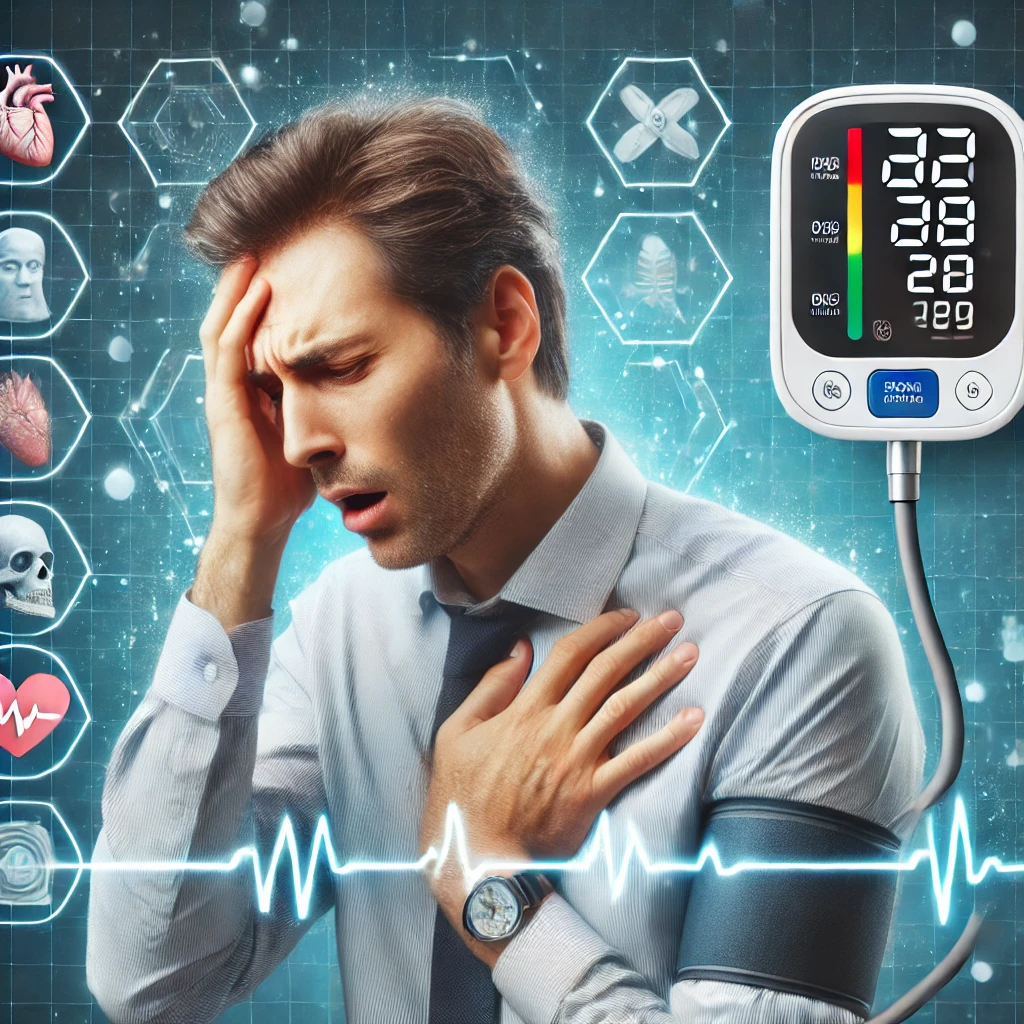
Hypertension, commonly known as high blood pressure, is a significant health concern affecting millions worldwide. It is often referred to as the “silent killer” because it can develop without noticeable symptoms, leading to severe complications such as heart disease, stroke, and kidney failure.
As a leading pharmaceutical company, Hoechst Pakistan Limited is committed to spreading awareness about hypertension and providing advanced healthcare solutions to manage this condition effectively. This article delves into the symptoms of hypertension, its impact on health, and the importance of early detection and treatment.
What is Hypertension?
Hypertension is a chronic condition where the force of blood against artery walls remains consistently high. A regular blood pressure reading is typically around 120/80 mmHg. When readings exceed 130/80 mmHg, a person is classified as hypertensive.
Hypertension can be categorized into two types:
- Primary Hypertension: The most common type, developing gradually over years due to genetic and lifestyle factors.
- Secondary Hypertension: Caused by underlying conditions such as kidney disease, hormonal disorders, or medication side effects.
Common Symptoms of Hypertension
Hypertension often progresses silently, but in some cases, individuals may experience certain symptoms, especially when blood pressure reaches dangerously high levels.
1. Headaches
Severe headaches, particularly in the morning, may indicate high blood pressure. These headaches are often linked to increased pressure in the blood vessels of the brain.
2. Dizziness and Lightheadedness
Hypertension can reduce blood flow to the brain, leading to dizziness, loss of balance, or a feeling of faintness.
3. Blurred or Impaired Vision
High blood pressure can cause damage to the blood vessels in the eyes, leading to blurred vision or even vision loss in severe cases.
4. Shortness of Breath
Increased blood pressure forces the heart to work harder, leading to shortness of breath, especially during physical activity.
5. Chest Pain and Heart Palpitations
Hypertension can strain the heart, causing irregular heartbeats, chest discomfort, or even sharp pain. Persistent chest pain should be taken seriously, as it may indicate an impending heart attack.
6. Nosebleeds
Although rare, frequent or unexplained nosebleeds can be linked to high blood pressure, particularly when blood vessels in the nasal passages rupture due to excessive force.
7. Fatigue and Weakness
Reduced oxygen supply to vital organs due to hypertension can lead to chronic fatigue, sluggishness, and weakness.
8. Swelling in the Legs and Feet
High blood pressure can impact kidney function, leading to fluid retention and swelling, particularly in the lower extremities.
Complications of Uncontrolled Hypertension
If left untreated, hypertension can lead to life-threatening complications, including:
- Heart Disease and Heart Attack: Straining the heart can lead to thickened heart muscles, increasing the risk of heart failure.
- Stroke: High blood pressure can weaken blood vessels in the brain, leading to strokes.
- Kidney Damage: Hypertension can impair kidney function, leading to chronic kidney disease or kidney failure.
- Aneurysms: Persistent high blood pressure can cause blood vessels to bulge or rupture, resulting in internal bleeding.
- Cognitive Decline: Studies have linked hypertension to dementia and cognitive impairment due to reduced blood flow to the brain.
Diagnosing Hypertension
Early detection is key to preventing complications. Regular blood pressure monitoring is crucial, especially for individuals with risk factors such as obesity, diabetes, smoking, and a sedentary lifestyle. Doctors use the following methods to diagnose hypertension:
- Blood Pressure Readings: A sphygmomanometer measures systolic and diastolic pressure.
- Ambulatory Monitoring: A 24-hour blood pressure monitor provides continuous readings to detect fluctuations.
- Laboratory Tests: Blood and urine tests check for underlying conditions like kidney disease or high cholesterol.
- Electrocardiogram (ECG): Evaluates heart health and detects abnormalities caused by hypertension.
Managing Hypertension Effectively
Hoechst Pakistan Limited emphasizes the importance of lifestyle modifications and medical interventions in managing hypertension. Here are some essential strategies:
1. Adopt a Healthy Diet
- Reduce sodium intake to control blood pressure levels.
- Increase consumption of potassium-rich foods like bananas, spinach, and beans.
- Follow the DASH (Dietary Approaches to Stop Hypertension) diet, which includes whole grains, lean proteins, and vegetables.
2. Regular Physical Activity
- Engage in at least 30 minutes of moderate exercise (walking, jogging, swimming) most days of the week.
- Incorporate strength training to improve heart health.
3. Weight Management
- Maintaining a healthy weight reduces strain on the heart and lowers blood pressure.
- Even a 5-10% weight reduction can have significant health benefits.
4. Limit Alcohol and Quit Smoking
- Excessive alcohol consumption raises blood pressure.
- Smoking damages blood vessels and accelerates hypertension-related complications.
5. Stress Management
- Practice relaxation techniques like deep breathing, meditation, or yoga.
- Maintain a work-life balance to reduce stress levels.
6. Medication and Medical Support
- Hoechst Pakistan Limited offers a range of antihypertensive medications that help regulate blood pressure effectively.
- Commonly prescribed medications include ACE inhibitors, beta-blockers, diuretics, and calcium channel blockers.
- Regular consultations with healthcare providers ensure proper dosage and prevent side effects.
The Role of Hoechst Pakistan Limited in Hypertension Awareness
As a pioneer in the pharmaceutical industry, Hoechst Pakistan Limited is dedicated to providing high-quality medications and promoting public awareness about hypertension. Through community programs, awareness campaigns, and medical research, the company aims to educate individuals about the importance of early detection and proper management of high blood pressure.
Conclusion
Hypertension is a silent yet dangerous condition that can lead to severe health complications if left unchecked. Recognizing its symptoms, seeking timely medical advice, and adopting a healthy lifestyle are crucial steps toward managing blood pressure effectively.
With the continuous efforts of organizations like Hoechst Pakistan Limited, individuals can access reliable medications and educational resources to lead healthier lives. Regular check-ups, proper medication, and lifestyle adjustments can go a long way in preventing hypertension-related diseases and improving overall well-being.
If you experience any symptoms of hypertension or have risk factors for high blood pressure, consult your healthcare provider today for early diagnosis and effective management.